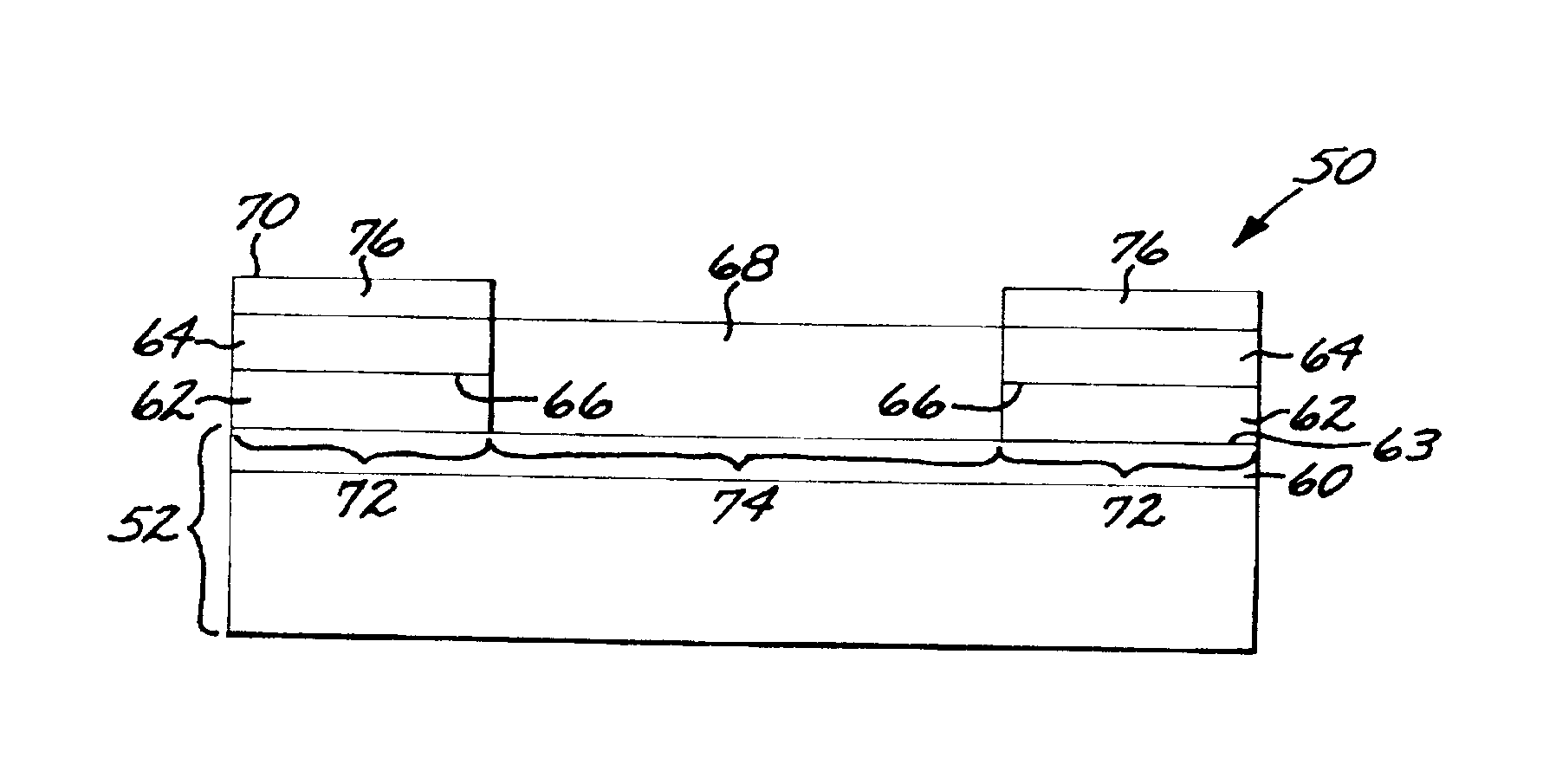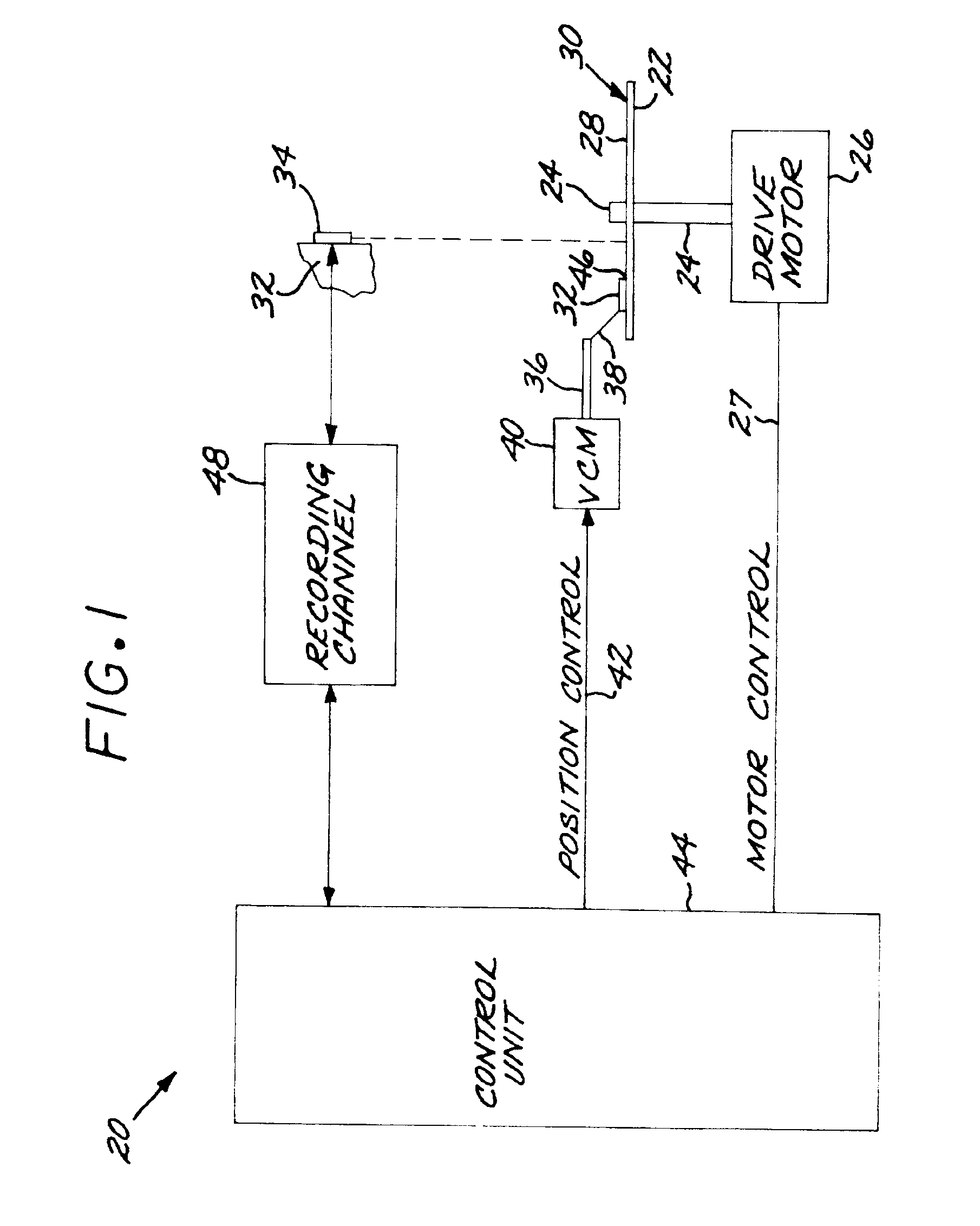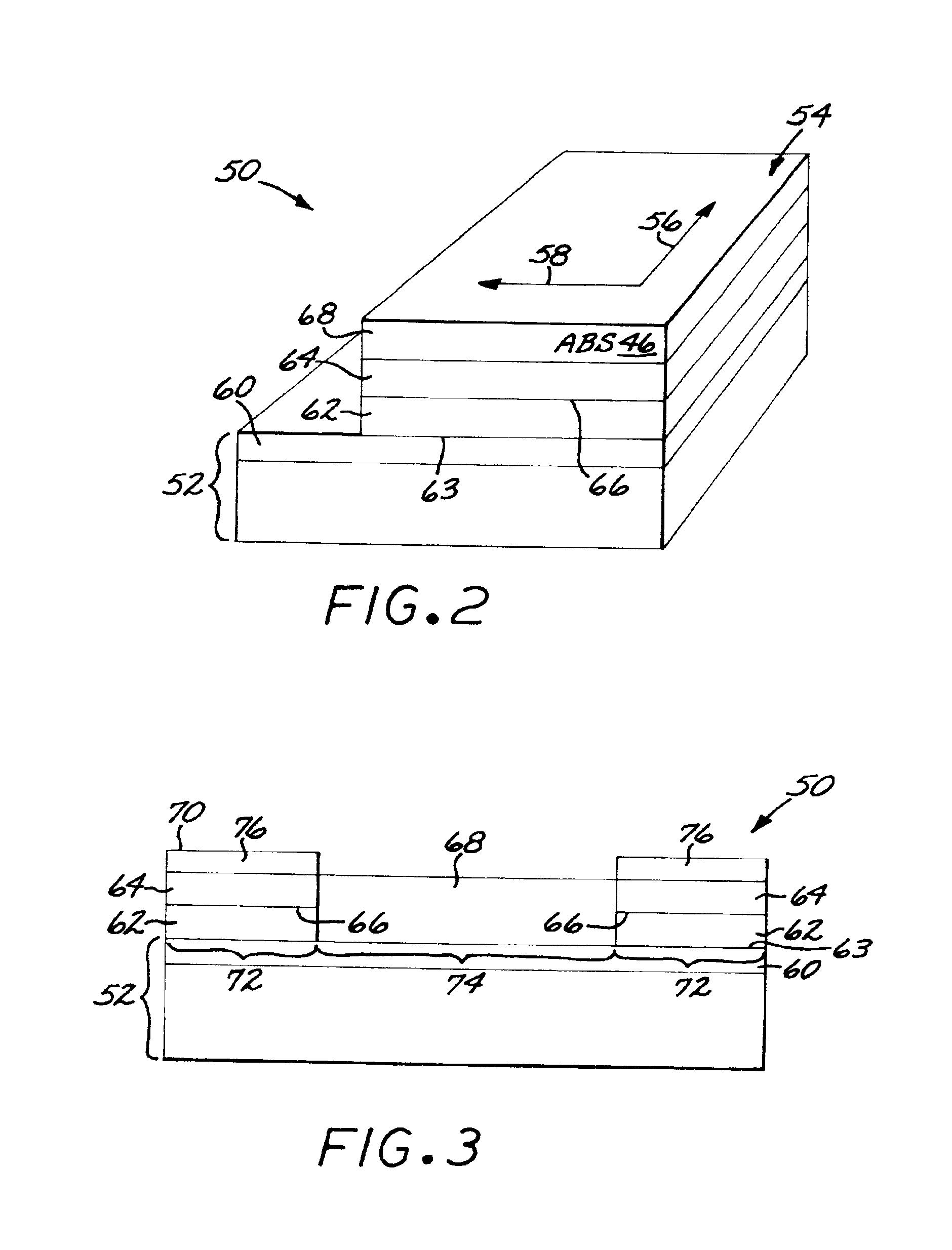Magnetoresistance sensor having an antiferromagnetic pinning layer with both surfaces pinning ferromagnetic bias layers
a magnetoresistance sensor and antiferromagnetic pinning technology, applied in special recording techniques, instruments, nanoinformatics, etc., can solve problems such as exchange coupling and magnetic instability, and achieve the effect of improving the structure efficiency
- Summary
- Abstract
- Description
- Claims
- Application Information
AI Technical Summary
Benefits of technology
Problems solved by technology
Method used
Image
Examples
Embodiment Construction
[0019]FIG. 1 shows a data storage system, here depicted as a magnetic disk drive system 20, in which the present approach may be used. The magnetic disk drive system 20 includes a rotatable magnetic storage disk 22 that is supported on a spindle 24 and rotated by a disk drive motor 26 under motor control 27 of a control unit 44. A magnetic storage medium 28 is deposited on a surface 30 of the magnetic storage disk 22.
[0020]A slider 32 is positioned in facing relation to the magnetic storage disk 22. The slider 32 supports at least one read / write head 34 in facing relation to the magnetic storage medium 28 present on the facing surface of the magnetic storage disk 22. The slider 32 is mounted to an actuator arm 36 by a suspension 38. The actuator arm 36 and the slider 32 move radially inwardly and outwardly relative to the magnetic storage disk 22 so that the combined inward / outward motion of the slider 32 and the rotation of the magnetic storage disk 22 allow the read / write head 34 ...
PUM
| Property | Measurement | Unit |
|---|---|---|
| thick | aaaaa | aaaaa |
| thick | aaaaa | aaaaa |
| thick | aaaaa | aaaaa |
Abstract
Description
Claims
Application Information
 Login to View More
Login to View More - R&D
- Intellectual Property
- Life Sciences
- Materials
- Tech Scout
- Unparalleled Data Quality
- Higher Quality Content
- 60% Fewer Hallucinations
Browse by: Latest US Patents, China's latest patents, Technical Efficacy Thesaurus, Application Domain, Technology Topic, Popular Technical Reports.
© 2025 PatSnap. All rights reserved.Legal|Privacy policy|Modern Slavery Act Transparency Statement|Sitemap|About US| Contact US: help@patsnap.com



